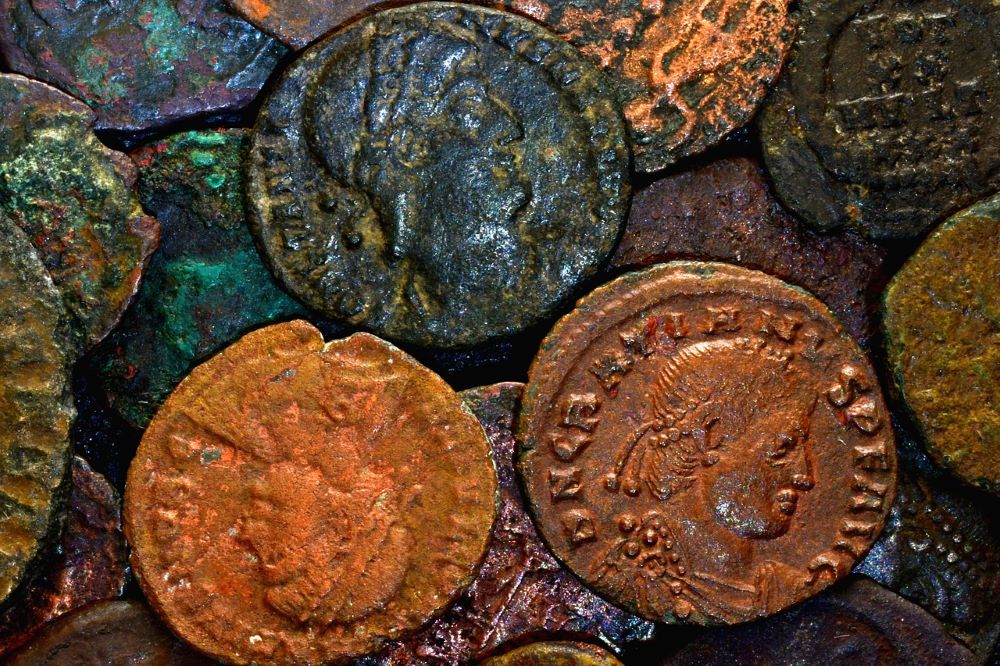
(Pixabay/Thanasis Papazacharias)
The cartoon character Charlie Brown never ages, and seems not to learn much either. Every fall since 1953, Lucy has been snatching away the football just before Charlie can kick it, leaving him sprawled on the ground, lamenting. Poor old Charlie Brown.
It often seems that Jesus' opponents were as naïve as Charlie Brown and as unkind and double-crossing as Lucy. Over and again, they failed to realize that they were no match for the wit and wisdom of their prey. Time after time, they tried to trap Jesus, only to find themselves caught in the spiraling conundrums that flowed from their attempts. As often happens, the Gospel we hear today has multiple levels of significance.
Jesus must have enjoyed the rich irony of the group that marshaled to approach him that day; they were Herodians and disciples of the Pharisees — groups with significant ideological differences brought together because they chose to see Jesus as a rival. The combination of these two groups intent on cornering Jesus made for great public theater. Like prosecuting attorneys, they planned to bamboozle him with a question about paying taxes: If he said, "Don't pay," he was rebelling against the Romans; if he advised payment, he was affirming the Roman right to collect a hated tax — something like the British tax of 1773 that led to the Boston Tea Party. Unfortunately for them, Jesus was quick on his feet and led them to get snared in their own trap.
He said, "Show me the money!" Money always talks. In this case, when one of them produced the type of Roman currency required for paying that much-loathed tax, the coin made a visual announcement that at least one of those purists was walking around with a portrait of Caesar in his purse. That coin not only had an image, but it bore the inscription, "Tiberius Caesar, Son of the Divine Augustus." That announced that the holder was ready to comply with the tax and also carried a "graven image" of a false God: flagrant violations of God’s command. (In the Catholic list of the 10 , this is part of the first commandment; in the usual Protestant version it is the second.) Simply by showing Jesus the coin they had, they incriminated themselves both of being compliant with Rome and as breaking the law of God. This much of the entertainment is obvious.
Now for the spiraling conundrum. Jesus asked, "Whose image (literally icon) is there?" When they identified Caesar, he said, "Render to Caesar what is Caesar's and to God, what belongs to God." That short interchange included two key points.
First, "icon" is the word used in Genesis to speak of human beings created as images of God. Genesis 1:26-27 uses the word icon three times as it teaches that male and female are created in the divine image. Hearing the question, "whose image?" created an echo of Genesis in the minds of anyone steeped in the scriptures, reminding them that every person is an august icon of God.
Second, the word, "render," means more than "pay" or even "repay." It implies that the person in question is handing over something very personal — this isn't just a random silver dollar; "rendering" something indicates that the givers are handing over a bit of themselves and admitting that the receiver has the right to it. This raises the question of what really belongs to Caesar and what belongs to God. Because Jesus had brought Genesis to mind, the answer was obvious: Everything is part of God's creation, destined to be consecrated to God's purpose.
Advertisement
Just like Charlie Brown running toward Lucy, the team of Pharisees and Herodians fell into Jesus' trap and were left sprawling. Instead of forcing Jesus' hand, the evidence they produced implicated them in the very transgressions they were trying to pin on Jesus. He, in turn, had transformed their interrogation into a proclamation of God's unique sovereignty.
Note: In the process of taking the lead role in this skit, Jesus didn't really answer his opponents' question — at least not directly. He taught unequivocally that love of God and neighbor summarize the human vocation, but he avoided giving details about how love should be incarnated in particular situations — the only hard and fast rule would be love.
As disciples who realize that Jesus did not give a definitive answer, we need to revisit the scene, seeking what the incident teaches. Avoiding meticulous mandates, Jesus invites us to deeper considerations. By recalling Genesis and the human vocation to be icons of the divine, he calls forth our creativity. While he does not give us hard and fast rules, he promises to be there for us, more trustworthy than Lucy, sending the Spirit who helps us learn better than Charlie.
